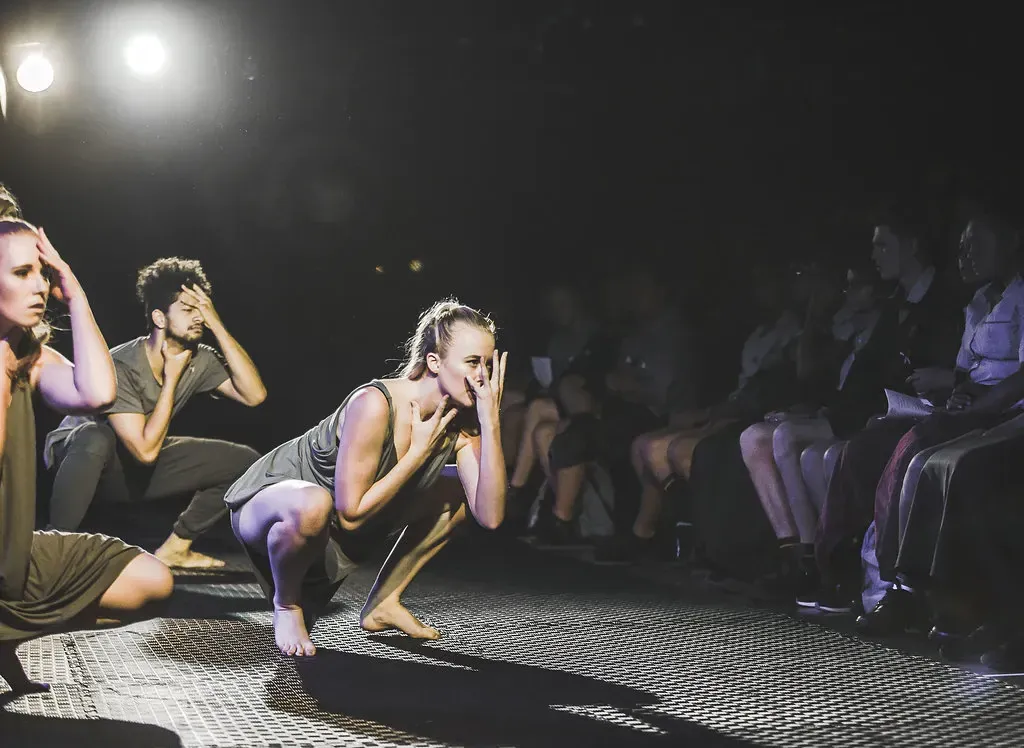Auckland Arts Sector Faces Crisis With Council Draft Plan
Written by

The draft Auckland Plan currently up for consultation (until Wednesday, 28th March) represents a crisis point for all Aucklanders who love and participate in the arts, if the plan were to be published in its proposed form.
The draft effectively removes almost all references to arts, creativity and culture that existed in the previous plan, and makes no acknowledgement of their role in bringing about the plan’s vision of “a world class city where talent wants to live”.
While the draft states upfront that “auaha - creativity/innovation” is one of the core values woven through the plan, very little reference is made to creativity, especially arts-led creativity, in any of its five outcomes and their priorities: Belonging and Participation, Homes and Places, Transport and Access, Environmental and Cultural Heritage, and Opportunity and Prosperity.
When arts advocate and Basement Theatre Executive Director, Elise Sterback, challenged Council staff on these omissions in an earlier consultation process offered to the Toi Whitiki Regional Arts Strategy Steering Group, she was told that these activities were implied as part of the detail of delivery of the priorities outlined. Suggested edits Ms Sterback provided at this point have not been integrated into the draft document now released for public consultation.
The previous Auckland Plan explicitly stated a goal of “integrating arts and culture into the everyday lives of Aucklanders”, and acts as a foundational reporting requirement for organisations, like Basement Theatre, who receive regional arts investment from Council. This goal also acted as the guiding principle for the development of Council’s Regional Arts and Culture Strategy - Toi Whitiki, and may lose its status under the new plan if the goal were to be removed from Council’s vision as proposed.
Auckland was recently made a UNESCO City of Music, a honour which is granted to cities that have “identified creativity as a strategic factor for sustainable urban development”. Auckland’s UNESCO application was endorsed by the Mayor and acknowledged the role that music, much in the same way as many creative sectors, both enriches the lives of Aucklanders, and also “plays a vital role in mitigating the challenges and leveraging the opportunities facing the city, particularly in relation to growth and diversity”. The application cited examples of urban regeneration through artistic events, placemaking and social revitalisation, as well as the role of music in creating a cohesive identity through storytelling.
The arts not only have a role to play in meeting challenges of diversity and belonging, but also contribute significantly to our prosperity. Auckland is home to just under half of New Zealand’s creative sector (49%), with more than 18,000 people working across 900 businesses and contributing $1.8b to our annual GDP. The draft plan does not recognise this, pointing solely to technology sectors as drivers of innovation.
The proposed budget accompanying the draft plan lacks any increased investment in the arts and creative sectors, and even contains a $300,000 cut to public arts spending. Auckland’s arts sector - from major cultural institutions to independent practitioners - has suffered from a scarcity of investment for over a decade. Professional artmakers found themselves competing with social causes when arts funding was merged with community funding in 2015, spreading an already small pool of investment across a vast area of need. More recently, a “save our gallery” campaign has emerged in support of the Auckland Art Gallery, which may be forced to restrict its programming and accessibility due to a lack of funds.
With Wellington Council’s recent announcement of an additional investment in arts and culture of $127 million as part of its mission to be the capital of culture, Auckland risks being left behind. Renowned Urban Strategist Richard Florida argues that cities seeking economic development cannot afford to lose their artists, citing a 2014 study that found that the arts play a larger role in economic development than their immediate impact, in that they cultivate an environment of innovation that affects other industries.
If Auckland really does want to be thought of as a world-class city - one that attracts talent, bridges growing diversity, and drives an innovative economy, then the draft Auckland plan represents a critical crossroads. We cannot afford to ignore the role our artists and cultural institutions play, rather we must elevate their contributions from the fine print to the forefront of our strategies.
To make a submission to the draft Auckland plan go to: shapeauckland.co.nz and give your feedback under the “Any other feedback” sections. Submissions close 8pm on 28th March 2018.
ENDS